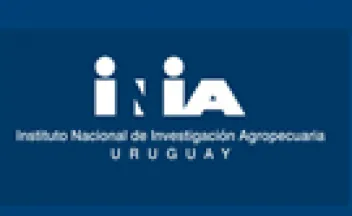Instituto Nacional de Investigación Agropecuaria
Ganado e invasión del bosque nativo por árboles exóticos:desde la facilitación al control.

La invasión de especies exóticas constituye un grave problema ambiental a nivel global, capaz de generar serios impactos ecológicos y económicos. En Uruguay, las invasiones biológicas son una importante amenaza para la biodiversidad, de particular gravedad en bosques nativos. Para prevenir y mitigar los impactos de las invasiones en bosques, es necesario conocer los factores y condiciones que favorecen y limitan los procesos invasivos.
Ganado e invasión del bosque nativo por árboles exóticos: desde la facilitación al control.

La invasión de especies exóticas constituye un grave problema ambiental a nivel global, capaz de generar serios impactos ecológicos y económicos. En Uruguay, las invasiones biológicas son una importante amenaza para la biodiversidad, de particular gravedad en bosques nativos. Para prevenir y mitigar los impactos de las invasiones en bosques, es necesario conocer los factores y condiciones que favorecen y limitan los procesos invasivos.
The final winter sward height of a native grassland pasture affects the quantity of the green biomass in spring. [abstract].

The management of native grasslands during winter could have effects on both quantity and characteristics of spring grown forage.
Ganadería Familiar Resiliente:un proyecto de co-innovación en clave de articulación.

Este artículo relata los principales elementos surgidos en los primeros 22 meses de ejecución del proyecto Ganadería Familiar Resiliente (GFR) en forma conjunta entre la Comisión Nacional de Fomento Rural (CNFR) y el Instituto Nacional de Investigación Agropecuaria (INIA). Se trata de una nueva experiencia de coinnovación en ganadería familiar, con la particularidad de ser liderada por una organización nacional de productores.
Ganadería Familiar Resiliente: un proyecto de co-innovación en clave de articulación.

Este artículo relata los principales elementos surgidos en los primeros 22 meses de ejecución del proyecto Ganadería Familiar Resiliente (GFR) en forma conjunta entre la Comisión Nacional de Fomento Rural (CNFR) y el Instituto Nacional de Investigación Agropecuaria (INIA). Se trata de una nueva experiencia de coinnovación en ganadería familiar, con la particularidad de ser liderada por una organización nacional de productores.
Sistemas ganaderos familiares sostenibles:acuerdo de trabajo CALIMA - INIA.

Mediante un trabajo de tres años ejecutado por CALIMA con apoyo metodológico de INIA, la cooperativa implementó una propuesta técnica para cría vacuna que refleja las particularidades de su zona de influencia, en dos predios foco. Este artículo sintetiza los principales aspectos de la metodología, medidas implementadas y resultados alcanzados.
Sistemas ganaderos familiares sostenibles: acuerdo de trabajo CALIMA - INIA.

Mediante un trabajo de tres años ejecutado por CALIMA con apoyo metodológico de INIA, la cooperativa implementó una propuesta técnica para cría vacuna que refleja las particularidades de su zona de influencia, en dos predios foco. Este artículo sintetiza los principales aspectos de la metodología, medidas implementadas y resultados alcanzados.
Paginación
- Página anterior
- Página 15
- Siguiente página
